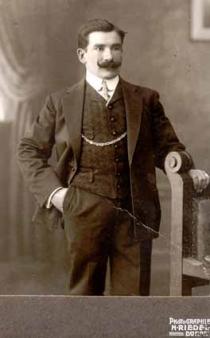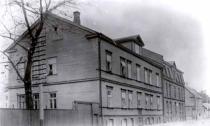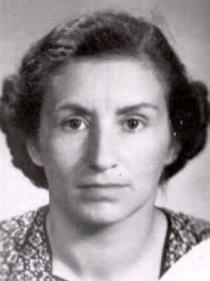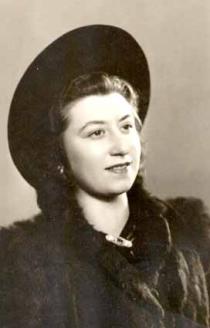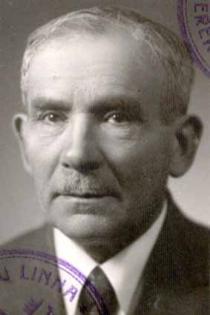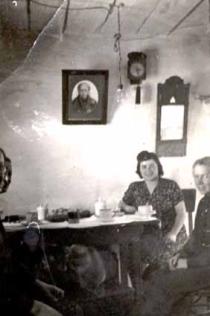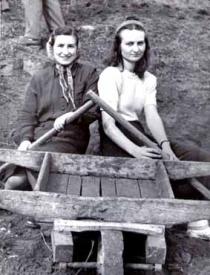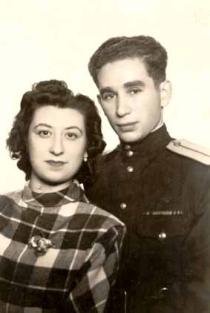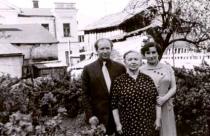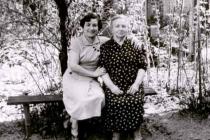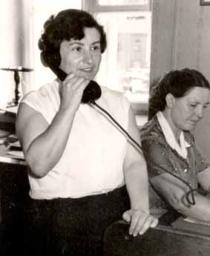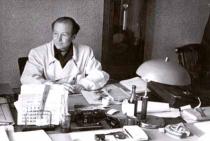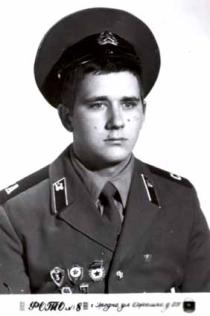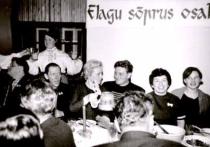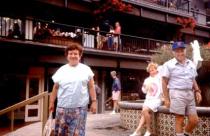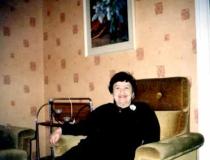This is me with my mother Ethe Feiman on the bench near our house. My mother was ill and I took her for a stroll in the yard. This photo was taken, when my older brother David Feiman, living in Tallinn with his family, came on vacation in Tartu in 1960.
When my mother returned to Tartu, she found other tenants in the apartment where we had lived before the war. Our belongings were gone. My mother lived in a smaller apartment in the same building where we had lived before the war. This was the very apartment she had lived in after her marriage. I lived with her. I worked at the shoe factory, in the logistics department. I was an accountant and was later promoted as the logistics manager. My Russian language skills helped me with my work. I could also handle Russian documentation. There were few Jews in our department.
At home we continued to observe Jewish traditions. Of course, we did it quietly and at home. There was no synagogue in Tartu after the war. It burned down during the war, and the local authorities made no effort to restore it afterwards. Abram, who was in Tartu, also observed Jewish traditions. Of course, it was difficult to follow the kashrut. Not only kosher, any other food products were hard to get. I think the card system in the country lasted till the late 1940s. We couldn't celebrate Sabbath since Saturday was a working day in the USSR. Sunday was the day off.
My mother died in 1961. We buried her in the Jewish cemetery in Tartu following the Jewish traditions. The Jewish cemetery wasn't destroyed during the occupation. Not one grave was touched or a gravestone ruined. It existed through the duration of the Soviet regime, and it's still there. After my mother's death we celebrated all the holidays at my brother's place.

